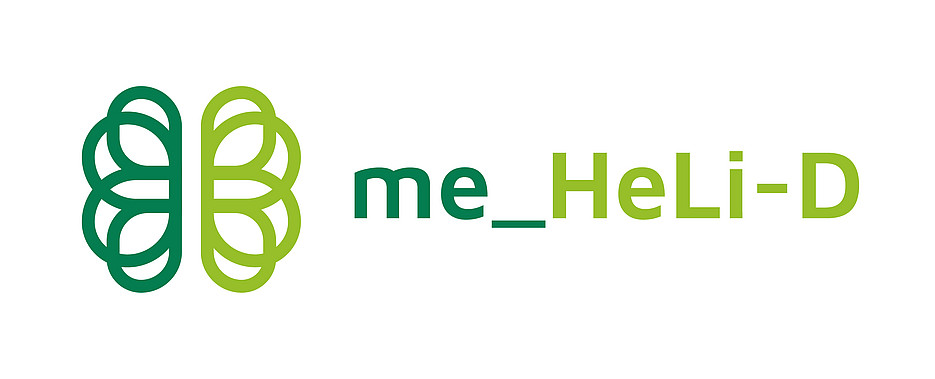me_HeLi-D and HeLi-D
Mental Health Literacy and Diversity. Enhancing Mental Health and Resilience through Digital Resources for Youth
The aim of the three-year Erasmus+ project is to promote the mental health and mental health literacy of students aged 12-15, regardless of their social and cultural background, socio-economic status, support needs, gender identity or sexual orientation. To this end, an innovative, adaptive, accessible program will be developed together with the partner countries Bulgaria, Slovenia and Poland. This online tool will include modules to promote mental health literacy, resilience, mindfulness and help-seeking behavior as well as modules for the prevention of anxiety and depression. It will be developed together with the participants, implemented in three countries with students from different backgrounds, evaluated with regard to its impact on the mental health of students and finally made freely available in four languages (English, German, Polish, Slovenian).
Duration: 01.09.2022-31.08.2025


Health Literacy and Diversity for Secondary School Students - HeLi-D
Pre-project to me_HeLi-D
The aim of the project HeLi-D was the development of a training program for promoting health literacy in secondary school students with highly diverse backgrounds regarding first language, socioeconomic status and disability. Within the project, health literacy is understood as the ability to find, understand, critically evaluate and apply health-related information. Considering the Internet’s important role in the students’ everyday life in general and its importance as a source of health-related information in particular, the HeLi-D project mainly focuses on digital components of health literacy.
In a participatory process with students, an adaptive digital training (ADT) program was developed. This ADT was implemented and evaluated over three to five weeks in spring 2019 applying a longitudinal study design. In total, 1113 students (681 intervention group, 432 control group) in Grades 6 and 7 in Styrian Middle Schools and Academic High Schools were involved. The core features of the ADT are its adaptivity and the linguistically differentiated content. This makes it possible for all students in a class to work on one and the same topic in an inclusive setting, regardless of their individual competencies.
The training program comprises five modules on different health-related topics. Each module consists of informational texts, reading comprehension tasks, and online research tasks, framed by a narrative text (i.e. a story). The texts within the modules are available in four different linguistic difficulty levels and are adaptively assigned to students according to their reading skills.
The project is funded by the Gesundheitsfonds Steiermark (Health Fund Styria) and has a duration of three and a half years (January 2018 to June 2021). The project is led by Univ.-Prof.in Dr.in Gasteiger-Klicpera (University of Graz) and carried out together with the Know-Center GmbH and the Medical University of Graz (Department of Surgery and Institute of General Practice and Evidence Based Health Services Research). The Know-Center is responsible for the programming of the ADT and the Medical University of Graz is mainly responsible for assuring the validity and accuracy of the content. The University of Graz is responsible for the design of the training materials and the implementation and evaluation of the intervention.
Partner organizations:
- University of Graz (project coordination)
- Know Center Graz
- Medical University of Graz
Project Management: Univ.-Prof.in Dr. Barbara Gasteiger Klicpera
Collaborators: Katharina Maitz BA BA MA and Dominik Pendl, BA MSc.
Contact Person: Dominik Pendl, MSc PhD
The department is also a member of the Austrian Platform for Health Literacy (ÖPGK).